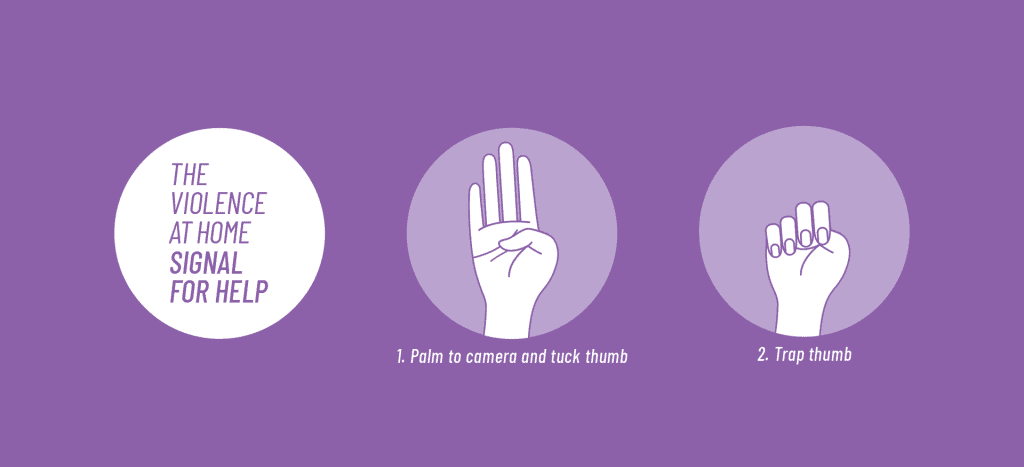No More Week: Signals and Code words
Wednesday 10-03-2021 - 16:25
Signal for Help
The social isolation measures necessitated by the COVID-19 pandemic are making it more difficult for those who are at risk of abuse or violence to safely reach out for help. “Signal for Help” is a simple one-handed sign someone can use on a video call. It can help a person silently show they need help and want someone to check in with them in a safe way.

If you see someone use the Signal for Help, check in with the person safely to find out what they need and want you to do. If you or someone you know is in immediate danger, call 999 or your local emergency services.
How to check in safely with someone:
- Call them and ask questions that can be answered with “yes” or “no”. This may reduce risk if someone is listening. For example:
“Would you like me to call 911?”
“Would you like me to call a shelter on your behalf?”
“Should I look for some services that might help you and call you back?” (Find some services you can reach out to at www.boltonsu.com)
- Use another form of communication such as text, social media, WhatsApp, or email and ask general questions. This may reduce risk if someone is watching the person’s device or accounts. For example, you can ask:
“How are you doing?”
“How can I help you out?”
“Get in touch with me when you can.” - Other questions you can ask:
“Do you want me to reach out to you regularly?”
“How else can I support you?”
What if an abuser learns about the signal?
As the signal is shared and becomes known by the public, there is a risk that an abuser might learn about it. People in abusive situations are also often closely monitored by the person harming them, and they may not always feel safe enough to use the signal.
There is no one-size-fits-all solution for everyone facing abuse. Everyone faces their own unique circumstance. The Signal for Help is one tool some people may be able to use, some of the time, to indicate they need help without leaving a digital trace.
It is important that people reach out for support if and when they feel ready, and they should do it in the ways that feel safest for them. People supporting them should be ready to help without judgement, and they should follow the lead of the person who needs help.
Codeword Scheme
If you are experiencing domestic abuse and need immediate help, ask for ‘ANI’ in a participating pharmacy. ‘ANI’ stands for Action Needed Immediately but also phonetically sounds like the name Annie. If a pharmacy has the ‘Ask for ANI’ logo on display, it means they’re ready to help. They will offer you a private space, provide a phone and ask if you need support from the police or other domestic abuse support services.
More Articles...

Powered by
Registered Office
Registered Office: University of Greater Manchester Students' Union, Deane Road, Bolton, BL3 5AB
Registered in England Company Number: 8659862
Registered Charity Number: 1153573

